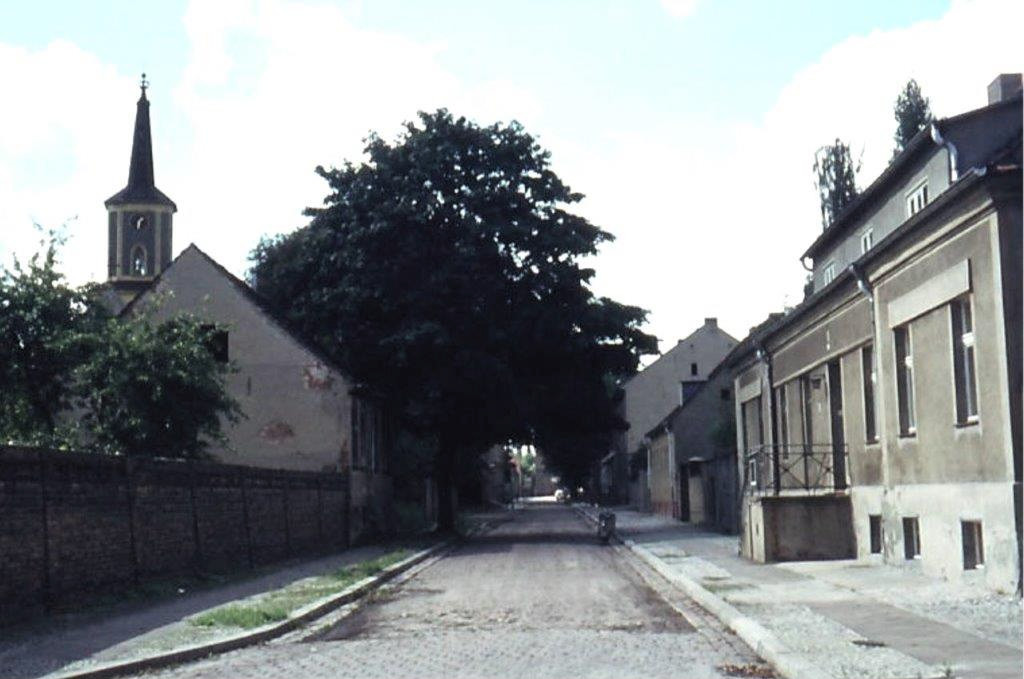[overview] [last station] [next station]
The history of the Teltow parsonage begins in the middle of the 16th century. During the first inspection of the church (Kirchenvisitation) at Pentecost 1545, the clerical officials wrote in the minutes: “And at any time a parish priest should have and keep the parsonage for his dwelling right here”. This also means that the location of the parsonage had always been here. That is why the Ritterstraße used to be called Priestergasse. And the Teltow parsonage was probably built even before the specified year 1545.
In the 17th century the parsonage burned down twice. Not only the priests and their families had to suffer the loss of all their belongings. The reconstruction of the parsonage and the farm buildings also brought great frustration to all Teltow citizens, because according to old custom they were always called upon to maintain the parish. The farmers had to provide all the haulage services and the craftsmen of the town all the hand services.

When the priest Andreas Macher moved into the Teltow parsonage in 1737, he was dissatisfied with the building of 1673 and commissioned a new and much more comfortable two-storey house. When the Teltowers were also financially burdened for this building in addition to the usual services, they were so angry about it that they demanded to replace Macher by a new priest. When Macher left Teltow in 1747, the new parsonage was still under construction and was not finished until 1749. The great town fire of 1801 also destroyed this parsonage. Two years later a new residential house was built with the floor plan and architecture that we can see today. Similar to some farmer burgher houses (Ackerbürgerhäuser) in the old town from the beginning of the 19th century, a magnificent building with a symmetrical façade and classicist details stands here.
As part of the old town restoration, the listed parsonage was renovated and modernised in 2001 and 2002. Archaeological excavations in the cellar of the parsonage were partially preserved and made accessible to the public.
